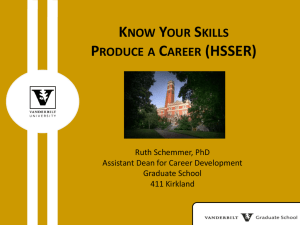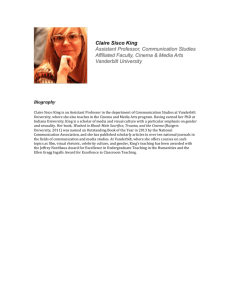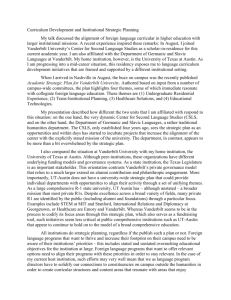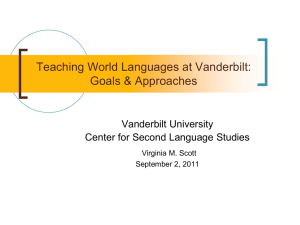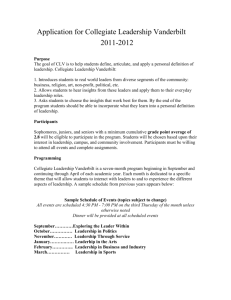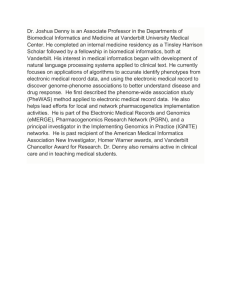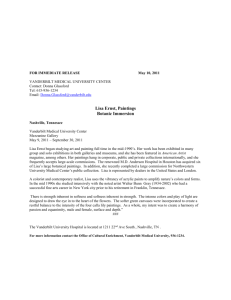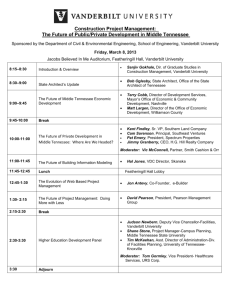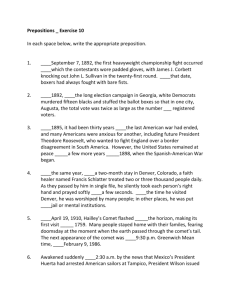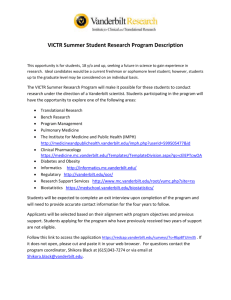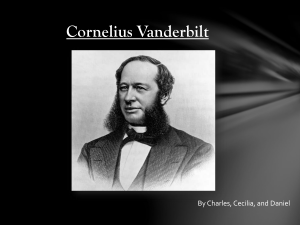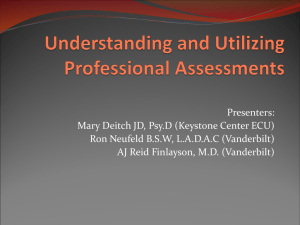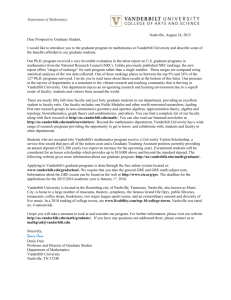Job Search For International Students
advertisement
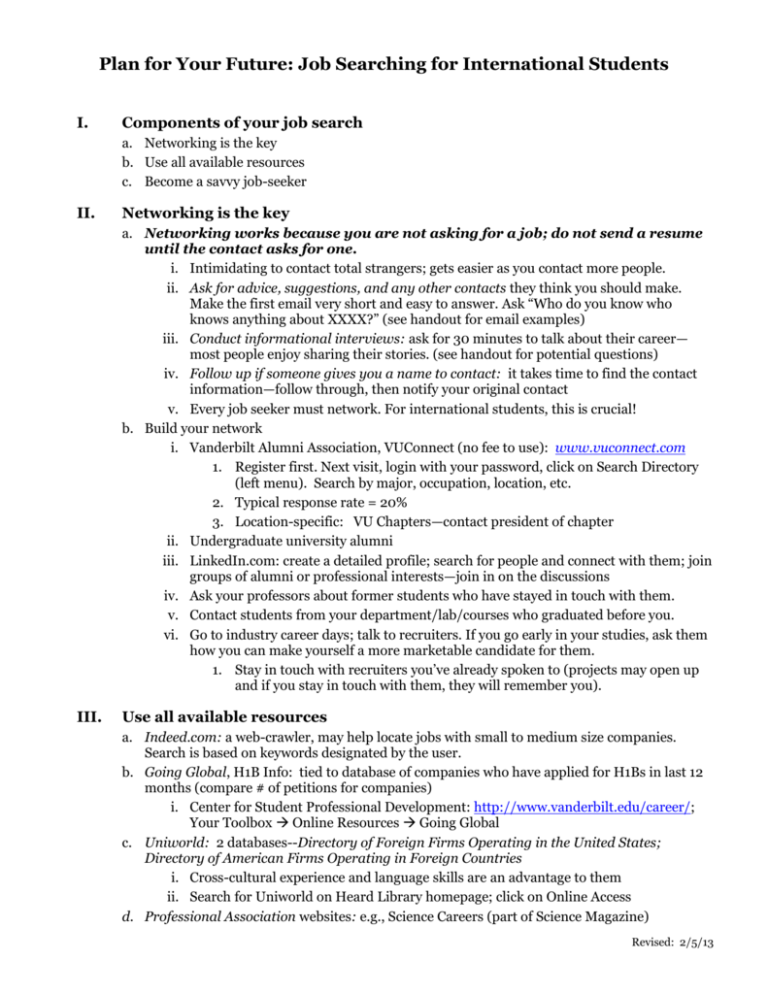
Plan for Your Future: Job Searching for International Students I. Components of your job search a. Networking is the key b. Use all available resources c. Become a savvy job-seeker II. Networking is the key a. Networking works because you are not asking for a job; do not send a resume until the contact asks for one. i. Intimidating to contact total strangers; gets easier as you contact more people. ii. Ask for advice, suggestions, and any other contacts they think you should make. Make the first email very short and easy to answer. Ask “Who do you know who knows anything about XXXX?” (see handout for email examples) iii. Conduct informational interviews: ask for 30 minutes to talk about their career— most people enjoy sharing their stories. (see handout for potential questions) iv. Follow up if someone gives you a name to contact: it takes time to find the contact information—follow through, then notify your original contact v. Every job seeker must network. For international students, this is crucial! b. Build your network i. Vanderbilt Alumni Association, VUConnect (no fee to use): www.vuconnect.com 1. Register first. Next visit, login with your password, click on Search Directory (left menu). Search by major, occupation, location, etc. 2. Typical response rate = 20% 3. Location-specific: VU Chapters—contact president of chapter ii. Undergraduate university alumni iii. LinkedIn.com: create a detailed profile; search for people and connect with them; join groups of alumni or professional interests—join in on the discussions iv. Ask your professors about former students who have stayed in touch with them. v. Contact students from your department/lab/courses who graduated before you. vi. Go to industry career days; talk to recruiters. If you go early in your studies, ask them how you can make yourself a more marketable candidate for them. 1. Stay in touch with recruiters you’ve already spoken to (projects may open up and if you stay in touch with them, they will remember you). III. Use all available resources a. Indeed.com: a web-crawler, may help locate jobs with small to medium size companies. Search is based on keywords designated by the user. b. Going Global, H1B Info: tied to database of companies who have applied for H1Bs in last 12 months (compare # of petitions for companies) i. Center for Student Professional Development: http://www.vanderbilt.edu/career/; Your Toolbox Online Resources Going Global c. Uniworld: 2 databases--Directory of Foreign Firms Operating in the United States; Directory of American Firms Operating in Foreign Countries i. Cross-cultural experience and language skills are an advantage to them ii. Search for Uniworld on Heard Library homepage; click on Online Access d. Professional Association websites: e.g., Science Careers (part of Science Magazine) Revised: 2/5/13 e. DoreWays: CSPD’s job listings f. Be open to working in your home country i. companies can hire you more easily to work outside the US—later, they would seek a different visa for current employees (not H1B) ii. think of this as Plan B g. Use resources in conjunction with each other: i.e., company in Uniworld/Indeed—look for alumni working in those companies IV. Be a savvy job-seeker a. Polish and sharpen your conversational and written English abilities: i. English Language Center: www.vanderbilt.edu/elc ii. Writing Studio: www.vanderbilt.edu/writing iii. Watch and re-watch American movies/television; get a conversation partner; talk to Americans any chance you get; practice, practice, practice! b. Get your resume, email messages and cover letters reviewed for grammar and word usage. c. Prepare for interviews: research the company, attend workshops, request a Mock Interview; visit CSPD’s website Your Toolbox Interviewing for information and Optimal Interview instructions d. Adhere to American business etiquette for career days, interviews i. Dress professionally. ii. Practice your handshake! iii. Maintain good eye contact. iv. Use little or no cologne/perfume (morning shower and deodorant work nicely ) v. Focus on how your training and skills could contribute to their success. V. Why is your job search so difficult? a. Being international is the biggest challenge you face—unrelated to skills, abilities, amount of preparation or resources utilized. b. Limited # of H1B’s available: 65,000 (in 2000, that number was 315,000) c. H1B’s pose additional expense for employer: from $3000-7000 d. OPT may not be enough to convince employers to hire you i. employer perspective: training costs highest in first year—little value is added by new hires until after first year (but they may not get to keep you as an employee) ii. however, 29-month option (STEM majors) may help companies in e-verify system e. Hiring hesitance trickles down to internships, as well i. companies hire interns as a pipeline for later full-time hiring; if they don’t sponsor H1Bs, they are less interested in CPT hiring f. You will increase your chances if you follow our advice: build your network, use all available resources and become a savvy job-seeker. Ruth Schemmer, Ph.D. ♦ Assistant Dean for Career Development 411 Kirkland Appts: (615) 343-2727 Direct: (615) 322-8088 ruth.schemmer@vanderbilt.edu Revised: 2/5/13 Networking Emails Subject line of email to alumni: (e.g., Vanderbilt PhD Seeking Advice; Education Graduate Student Seeking Advice) 1. Dear Ms./Mr. ___________ My name is ____________. I am a student at Vanderbilt University, graduating with a master’s/PhD in My Major in August 20xx. I am considering pursuing a career in (industry / job type). [or “I am currently seeking a job/internship in the ____ industry.”] I found your contact information in the VU Connect online directory (or wherever you found them). I was wondering if you would have a moment to share with me any advice, ideas, leads or contacts. Any suggestions you could offer would be greatly appreciated. Thank you for your time. Name Phone # ************************* 2. Dear Mr./Ms. ____________ Dr. John Doe, professor of electrical engineering at Vanderbilt University, suggested that I contact you for advice about a career in ________. He mentioned that you worked in his lab while doing your PhD studies, and felt you might have some good advice for me. I am currently exploring a career in industry, specifically research & development in the energy industry. I was wondering if you might have advice, suggestions, ideas or other contacts as I seek information about this career. I would be happy to visit with you by phone or by email, whichever is more convenient for you. Any assistance you could offer is greatly appreciated. Thank you— Name Phone # ************************* Subject line of email to company representative: College Student Seeking Information 3. Attn: Raymond Smith VP of Operations XYZ Corporation Dear Mr. Smith: I recently read in the Wall Street Journal of your company’s intention to expand production in Guangdong province in China, and noticed your name. Congratulations on your company’s continuing success. I am an international student from this area of China, and I am interested in obtaining an internship with your company this coming summer, either in your company headquarters in Indianapolis, or in some role involving travel to China. There are several ways I could support your company’s China business. I speak four dialects of Chinese, including Cantonese and Mandarin, which might be of great benefit to logistics or operations functions in your company. Also, I can help you with any company trips to China as an interpreter and a guide. There are many aspects of Chinese culture that are subtle, and it might be useful to your team to have someone who understands protocol as well as the local languages. Who would be the person in your company most likely to be interested in someone like me? Please let me know who I should try to contact, and I will follow your advice exactly. Upon graduation from Vanderbilt University, my student visa qualifies me for employment related to my studies, and I would be happy to work with your human resources staff if they have not hired an international student before. Thank you for your kind consideration, and I look forward to your advice! Respectfully submitted, Cheng-Chung “David” Lee Revised: 2/5/13 Informational Interview Questions 1) How did you get where you are today? ( or Where did you begin your career?) 2) What characteristics/skills make for a good _________? 3) How would you describe the culture of your organization? 4) If you were starting your career today, what would you do differently? 5) What can I do to make myself marketable for this career? 6) Any myths you want to shatter for me? 7) Where do you see opportunity areas, needs? 8) Who else does this? What other companies? Who else should I be talking to? 9) What advice do you have for someone like me? 10) If I have additional questions, may I reach out to you again? 11) Is there anything I can assist you with, any way I can be of help to you? During an informational interview DO NOT ASK FOR AVAILABLE POSITIONS OR JOB OPENINGS. You requested their help with advice and ideas, they didn’t agree to serve as your agent. Asking if they know someone who can help is less demanding and doesn’t limit opportunities to particular job titles. Make sure you take detailed notes with each contact. Ruth Schemmer, Ph.D. ♦ Assistant Dean for Career Development 411 Kirkland Appts: (615) 343-2727 Direct: (615) 322-8088 ruth.schemmer@vanderbilt.edu Revised: 2/5/13
